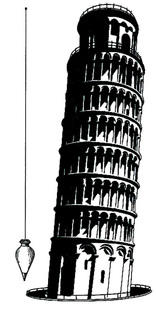The goal for this year’s offering is $175 million. The theme of this year’s emphasis is “Because of Who He Is”, referencing the person and work of Jesus Christ. If you desire, you can read more about all of this at: http://www.imb.org/main/lottie-moon/default.asp.
Southern Baptists' most famous international missionary was Charlotte Griggs “Lottie” Moon – the namesake of the annual missions offering. Her convicting story can be found here: http://www.imb.org/main/lottie-moon/details.asp?StoryID=
13793#.Vl0SPdoo45s.
But she was not the first international Baptist missionary. That distinction belongs to another individual. During the 1835 meeting of the Baptist Triennial Convention, an offering was received for foreign missions. When the presiding ministers counted the offering, they discovered a slip of paper that Jehu Lewis Shuck had put into the offering plate on which he had written, "I GIVE MYSELF". As history would demonstrate, he was quite serious.
Shortly after that fateful night, he married Henrietta Hall. Later that same year, the two of them were appointed for missionary service in China by the Baptist Convention. The Shucks arrived in Macao in 1836, where they lived and worked throughout the treacherous Opium War (1839-1842). Thereafter, they moved to Hong Kong; and a year later organized the first ever Baptist church there.
Mr. Lewis occupied himself with evangelization and publishing. Meanwhile, his wife, Henrietta, opened a school for Chinese children and began taking Chinese orphans into her home - a practice which she had begun in Macao. During their time in Hong Kong, the number of indigenous Chinese children whom the Shucks fed, clothed, and nurtured grew to thirty-two.
Besides being the first American female missionary to China, Henrietta Lewis sent a steady stream of letters home to supporters, many of which were later published. Sadly, she died a premature death at age twenty-seven after she gave birth to her fifth child. But this tragedy gained for her a place in Baptist mission lore, especially among Southern Baptists, where she is esteemed second only to that of Charlotte Griggs “Lottie” Moon.
Not to be deterred from his missionary calling, a year after Henrietta's death in 1844, Jehu Lewis Shuck left China for a furlough in the United States. While stateside, he affiliated with the newly formed Southern Baptist Convention Foreign Mission Board (SBCFMB). He also married a second time before returning to China, accompanied by his new wife. Eliza, and several other newly appointed missionaries.
Back in China, he settled in Shanghai, the northernmost of the five new treaty ports. There, along with Matthew T. Yates, he organized the Baptist Mission in China. While they had a generally harmonious working arrangement, problems arose as a result of the death of Shuck's second wife, Eliza, in 1851. Sadly, this left him with six children, three in China and three in the United States. Thus, in November 1852, still grieving but accepting his earthly responsibilities as a father, Shuck left China for the last time.
But consider what he had accomplished. While there, he had begun three churches, built four chapels and a school, baptized at least forty Chinese converts, and written and published thirteen works in Chinese languages. And he wasn’t done yet.
After arriving back in the United States in 1853, he resigned from the Southern Baptist Convention Foreign Mission Board in order to accept an appointment by the Southern Baptist Convention Domestic Mission Board as a missionary to Chinese people in California. Ever faithful, in 1855, he organized a Chinese-speaking Baptist church in San Francisco, the first ever inside the United States.
Six years later, in 1861, plagued by health issues himself, he retired to Barnwell, South Carolina. Shortly thereafter, at the age of 49, he passed away.
What can we take from the story of the Shucks? Just this: All God wants is for us to say: “I give myself.” If we are willing to say this, God will surely do the rest.
In the Old Testament Book of Isaiah, chapter 6, verses 8-9, the following conversation is recorded: “Then I heard the voice of the Lord saying, ‘Whom shall I send? And who will go for us?’ And I said, ‘Here am I. Send me!’ He said, ‘Go and tell this people…’”
The question God posed to Isaiah is the same one He still poses to you and me: “Who will go for Me?” Do not be afraid to answer this question. Do not be afraid to say: “Here am I; send me.” Saying this does not necessarily mean He will send you to China. It only means He will find a way to use you. And this could very well be among your own people; as it was for Isaiah himself. But if you never say this, do not expect to be used of God.
“Me, Myself, and I” - three powerful entities. The question is: “How will they be used?” For “God, Himself, and Him” or for “you, yourself, and you”. Which will it be?
SOURCE: http://www.bdcconline.net/en/stories/s/shuck-jehu-lewis.php.
